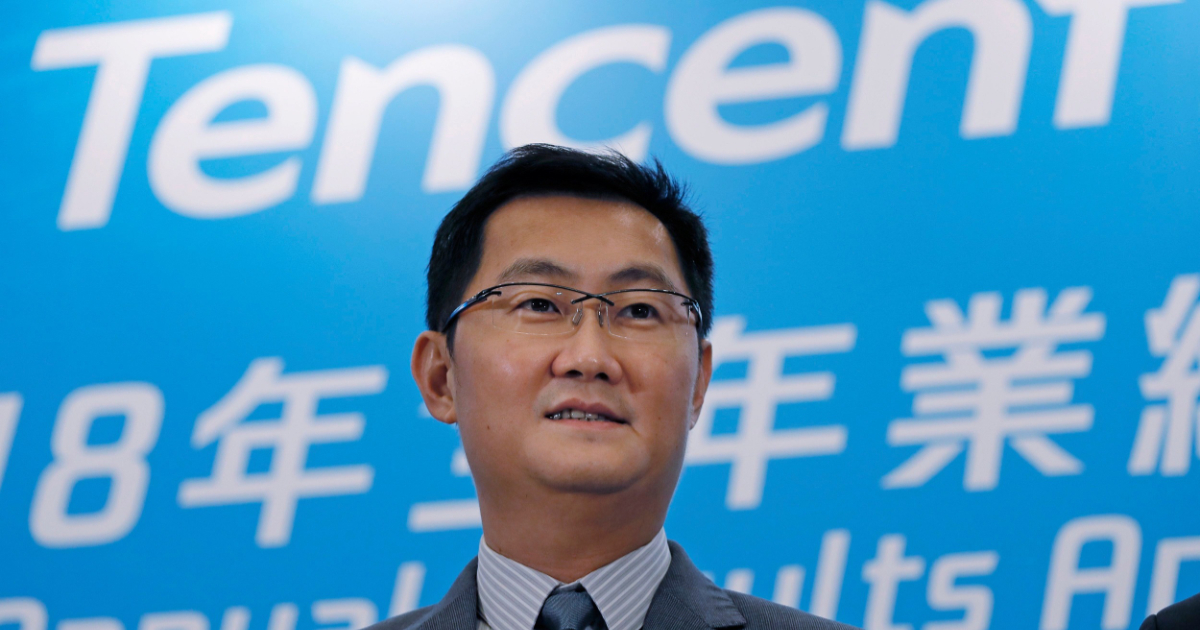Besides Bytedance and Alibaba, Chinese tech giant Tencent Holdings is also making inroads into Singapore.
Tencent, which is also WeChat’s parent company, is setting up its regional hub in Singapore as it expands further into Southeast Asia (SEA) and shifts some of its business operations out of China.
Singapore is particularly attractive as a regional base for tech companies across the world, with its advanced financial system, low tax, sophisticated digital infrastructure and highly educated workforce, as well as being a ‘neutral’ country.
Founded in 1998 by an entrepreneur named Ma Huateng, Tencent is said to be the biggest rival of Alibaba Group, the largest e-commerce company in China.
In contrast to Alibaba or Bytedance, Tencent has had a smaller footprint in SEA.
However, Tencent has ramped up efforts to expand globally in recent years as the Chinese market saturates and stricter regulatory controls on gaming slow down domestic growth.
Here’s a look at Tencent’s expansion plans in Singapore as it looks to conquer the region.
Opening A New Office In S’pore
For Tencent, this venture into SEA will be a slightly newer experience, as the tech behemoth has largely ran its operations out of Shenzhen, though it does store some user data in Singapore.
The new hub follows the planned expansion of Bytedance and investments by Alibaba as firms look to deepen their exposure to SEA, which is home to about 650 million people.
Last September, it was reported that Tencent will have almost 200 seats at JustCo’s co-working space in Raffles Place.

The lease runs for one year, giving China’s largest social media and video gaming company flexibility to seek a larger space as it adds staff, sources said.
In a separate statement, Tencent said that apart from opening a new office in Singapore to “support (its) growing business in Southeast Asia and beyond, it will also recruit people for tech and business development.”
Its careers page features over a hundred job openings, including positions ranging from cloud computing to information security and data engineering.
Extending Its Cloud Computing Biz To Banking
Its cloud computing arm, Tencent Cloud, is also making inroads in the digital banking space.
Last July, it announced the signing of a Memorandum of Understanding (MoU) with Asia Digital Bank Corporation (ADBC) in Singapore.
As part of the agreement, ADBC will be able to use Tencent’s financial cloud platform to provide digital banking services to small and medium enterprises (SMEs), as well as leverage Tencent’s capabilities and solutions to drive its digital banking initiative.

This will be the start to collaborations on cloud-based financial services and joint innovations towards a data-driven digital bank to boost local businesses in Singapore through innovative technology and hands-on digital banking operations.
Moreover, Covid-19 has exposed the need for updated banking services to complement traditional banking processes.
Tencent Cloud has also achieved an Outsourced Service Provider Audit Report (Ospar) rating in Singapore.
This makes it one of a group of companies accredited by the Association of Banks in Singapore, further strengthening its accreditation in the banking space.
Investing In Several SEA Startups
Tencent has made several investments in SEA such as its US$3.3 million share stake in Singapore online gaming and e-commerce firm Sea Limited in 2017.
Tencent had actually mentored Sea Limited and today, it owns 22.9 per cent of the company.
Sea Limited’s game publishing business, Garena is a leading player in SEA and also exclusively distributes game titles in various countries across Southeast Asia and Taiwan.
Tencent has partnered with Sea to distribute its game titles in the Southeast Asia market. The platform is currently selling Tencent’s most popular games, including Arena of Valor, the international version of Chinese game Honour of Kings, and League of Legends.

In 2012, it acquired a 49 per cent stake for US$27 million in Level Up, a Singapore game design company – suggesting that Tencent might be leveraging on their game designing expertise for their titles.
Level Up had made a net profit of US$3.7 million for financial year 2010, almost tripling from the previous year. Some of the studio’s game titles include Perfect World and Combat Arms.
Tencent also dipped its hands in ride-hailing. In 2017, Tencent was the lead investor in a US$1.2 billion funding round in Indonesia’s ride-hailing firm Gojek.
In 2019, Tencent invested in Gojek again. This time, Gojek raised around US$1 billion in a funding round, led by Alphabet Inc’s Google, JD.com Inc and Tencent.
Tencent’s investment in Gojek could be part of a larger trend to make their way into Indonesia.
Tapping Into SEA’s Video Gaming Industry
Tencent has been making deeper forays into the region’s gaming market over the years.
SEA has proved an important market for Tencent, with some hit games, including ‘Arena of Valor’, performing well here.
Tencent will develop a full-scale comprehensive hub in Singapore that will house its international game publishing business.
The plans highlight Tencent’s international ambitions despite setbacks in India where the company’s hit games PUBG Mobile and Arena of Valor are banned.
Such geopolitical tensions have only accelerated their plans to shift their business operations like international game publishing outside of China.
It went on to tap into popular franchises from investees like Activision Blizzard, turning them into mobile hits marked its biggest global successes so far.
In the fourth quarter of 2019, international titles like Call of Duty Mobile and PUBG Mobile accounted for 23 per cent of Tencent’s US$17 billion gaming empire.
Possibly Establishing A Video Gaming Empire In SEA?
It is clear from Tencent’s strategic moves that the Chinese tech giant is looking to conquer the Southeast Asian online gaming market.
Its investment in Sea Limited, the parent company of Garena, Singapore’s largest game publisher, could propel its ambitions.
Garena has a market value of almost US$100 billion and has licenses to several games in Southeast Asia, Hong Kong, Macao and Taiwan.
Furthmore, SEA’s gaming market is expected to register a CAGR of 8.5 per cent over the forecast period of 2020 to 2025.

A trend that has also been fuelling the games market in the region is the rise of e-sports, an area where Tencent E-sports has grown into a leading esports brand in the world.
Southeast Asian gaming market offers Tencent many opportunities to grow its SEA gaming business.
Their move sets it apart from its competitors Alibaba and Bytedance who are also making their forays into Singapore, albeit with different strategies.
It is interesting to see how their investments give rise to insights into their strategies here.
From their respective investments, it can be seen that Alibaba wants to build a leading e-commerce logistics platform across SEA, while Bytedance focuses more on taking their social media services deeper into Asia.
Featured Image Credit: Shutterstock









